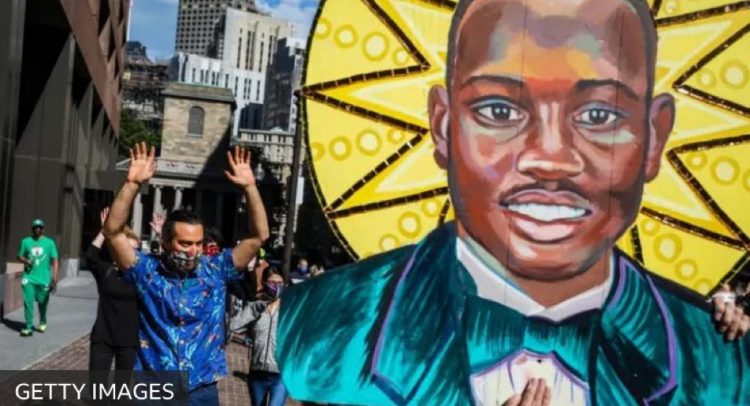The three men convicted of killing a black jogger, Ahmaud Arbery, have been sentenced to life in prison.
Two of the men will not have the possibility of parole.
A jury found Travis and Gregory McMichael and their neighbour, William Bryan, guilty of murdering Arbery in February 2020.
Bryan also received the maximum penalty of life, but was offered the possibility of parole in 30 years.
The judge said the McMichaels had not shown remorse or empathy for Arbery.
Judge Timothy Walmsley said he gave them severe sentences in part because of their “callous” words and actions captured on video.
Ahead of his verdict, the Arbery family called for the harshest possible punishments for the three men as a means of bringing “closure to a difficult chapter” in their lives.
The case has raised questions about racial justice in the US South.
Arbery, 25, a resident of Brunswick, Georgia, was out jogging in an adjacent, predominantly white neighbourhood when the trio chased and cornered him in pick-up trucks before the younger McMichael shot him during a struggle.
The defendants argued they acted in self-defence while attempting to make a citizen’s arrest of a suspected burglar, but prosecutors argued race was a factor.
Gregory McMichael, 66, his son Travis, 35, and Bryan, 52, were found guilty in November of murder, aggravated assault, false imprisonment and criminal intent to commit a felony.
“Taking the law into your own hands is a dangerous endeavour,” Judge Timothy Walmsley said on Friday.
“A neighbour is more than the people who just own property around your house,” continued the judge. “In assuming the worst in others, we show our worst character.”
Holding a minute of silence to put in context “a fraction of the time Ahmaud Arbery was running in Satilla Shores”, Walmsley said he “kept coming back to the terror that must have been in [Arbery’s] mind”.
“Remorse isn’t simply a statement of regret. Remorse is something that’s felt and demonstrated,” he said. “After Ahmaud Arbery fell, the McMichaels turned their backs.”
But he ruled that while Bryan – who filmed the incident – had participated in the ambush, he should have an opportunity for parole because he “demonstrated grave concerns that what had occurred should not have occurred” soon after.


